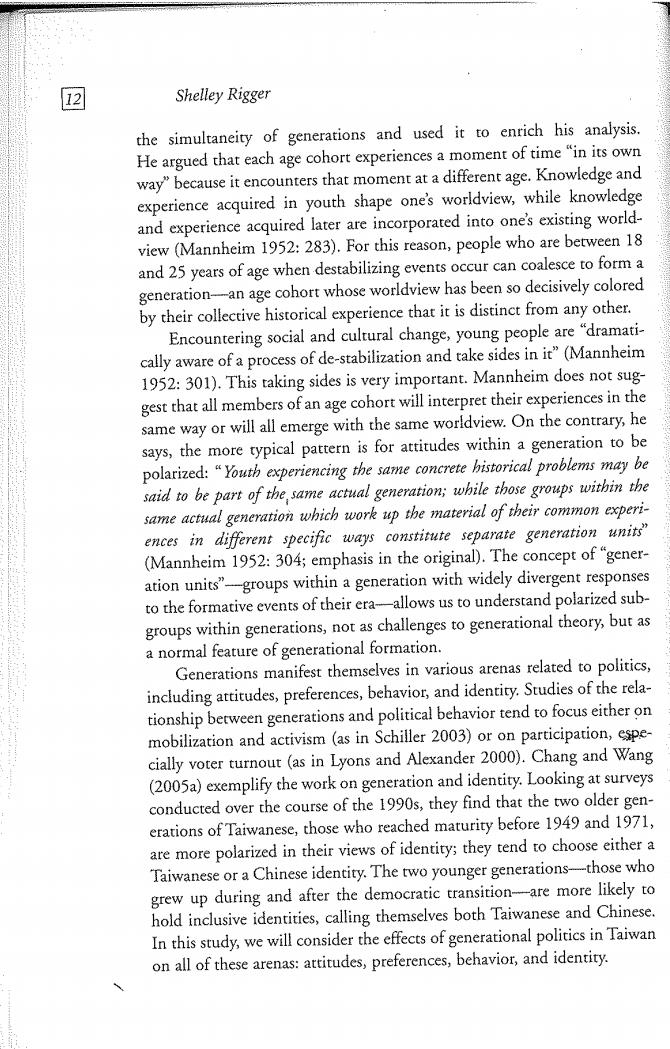正在加载图片...

2 Shelley Rigger the simultaneity of generations and used it to enrich his analysis. He argued that each age cohort experiences a moment of time"in its own way"because it encounters that moment at a different age.Knowledge and experience acquired in youth shape one's worldview,while knowledge and experience acquired later are incorporated into one's existing world- view (Mannheim 1952:283).For this reason,people who are between 18 and 25 years of age when destabilizing events occur can coalesce to form a generation-an age cohort whose worldview has been so decisively colored by their collective historical experience that it is distinct from any other. Encountering social and cultural change,young people are"dramati- cally aware of a process of de-stabilization and take sides in it"(Mannheim 1952:301).This taking sides is very important.Mannheim does not sug- gest that all members of an age cohort will interpret their experiences in the same way or will all emerge with the same worldview.On the contrary,he says,the more typical pattern is for attitudes within a generation to be polarized:"Youth experiencing the same concrete historical problems may be said to be part of the same actual generation:while those groups within the same actual generation which work up the material of their common experi- ences in different specific ways constitute separate generation units (Mannheim 1952:304;emphasis in the original).The concept of "gener- ation units"-groups within a generation with widely divergent responses to the formative events of their era-allows us to understand polarized sub- groups within generations,not as challenges to generational theory,but as a normal feature of generational formation. Generations manifest themselves in various arenas related to politics, including attitudes,preferences,behavior,and identity.Studies of the rela- tionship between generations and political behavior tend to focus either on mobilization and activism(as in Schiller 2003)or on participation,espe- cially voter turnout(as in Lyons and Alexander 2000).Chang and Wang (2005a)exemplify the work on generation and identity.Looking at surveys conducted over the course of the 1990s,they find that the two older gen- erations of Taiwanese,those who reached maturity before 1949 and 1971, are more polarized in their views of identity;they tend to choose either a Taiwanese or a Chinese identity.The two younger generations-those who grew up during and after the democratic transition-are more likely to hold inclusive identities,calling themselves both Taiwanese and Chinese. In this study,we will consider the effects of generational politics in Taiwan on all of these arenas:attitudes,preferences,behavior,and identity